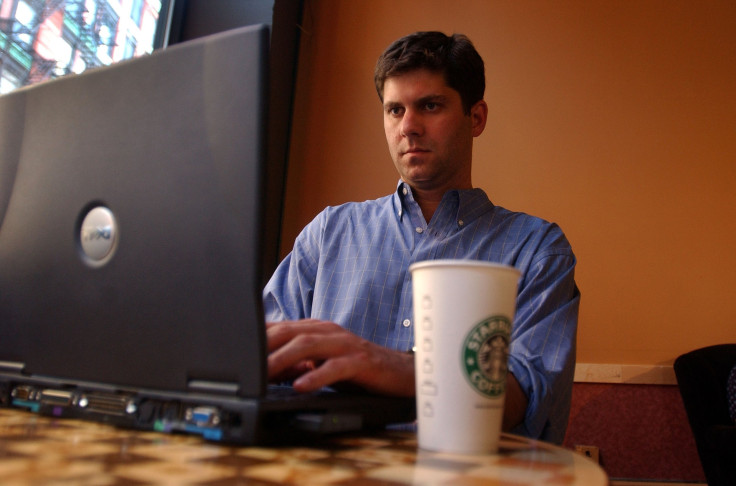Free Wi-Fi Spots: People Can't Help Logging On, Even If It's Dangerous

People just can’t live without Wi-Fi, even if it means they’re risking their private information, according to a July report from cybersecurity firm Symantec.
The findings were based on a May 2017 survey in which 15,500 people in 15 global markets were polled, including the United States.
Read: Anxiety And Social Media: Brain's Addiction To Checking Accounts
More than half of consumers around the world don’t think twice about hooking their device up to free public Wi-Fi, ignoring the risk of compromising personal data, the report said. The survey found 25 percent of respondents have hopped on a Wi-Fi network without the owner’s permission, while 8 percent guessed or hacked the password in order to get free internet.
Connecting to a Wi-Fi spot seems to be a force of habit, as 46 percent of consumers worldwide said they can’t wait more than a few minutes before logging into a network, or asking the owner of the hotspot for the password, whether it be a cafe spot or at a friend’s house.
“We’ve been conditioned as a culture to have the Internet follow us wherever we go,” Michael Osakwe from consumer finance site NextAdvisor told International Business Times. “Part of the push to get people to be more mindful about public Wi-Fi networks will likely involve getting consumers to think about how over-connected they might be, and to question the seemingly incessant urge to go online.”
Access to Wi-Fi is also dictating people’s decisions. Data show free Wi-Fi is a deciding factor for consumers when choosing stuff, like a hotel (71 percent), a restaurant (43 percent) or an airline (43 percent).
While nearly half of respondents said the most important reason to access Wi-Fi is so they can use Maps, Google Maps or other GPS apps, but some are not using it for necessary reasons. The survey found 1 in 6 respondents admitted to using public Wi-Fi to watch adult content.
Read: Facebook, Apple Pushing AR, But Many Americans Don't Know What It Is
As people rush to sign on to free Wi-Fi networks, they’re forgetting that cyber criminals can easily access private information through hotspots. Sixty percent of consumers worldwide say they feel their personal data is secure when using free Wi-Fi, while 53 percent said they couldn’t tell the difference between a secure or nonsecure network.
Security measures like Virtual Private Networks (VPNs) make browsing over free Wi-Fi networks safer. However, the survey found 75 percent of consumers said they did not use VPNs to surf the web safely.
Even with VPNs browsing with free Wi-Fi isn’t completely safe, Osakwe said, “because no solution is foolproof” and “free Wi-Fi is never risk-free.”
“Nothing will likely ever be unhackable,” said Osakwe, “but the basic advice regarding strong passwords and safer browsing habits can play some role in mitigating the amount of damage hackers might be able to get away with."
Major sites, like websites for banks and social media networks use HTTPs encryption, which makes users’ web activity unreadable to eavesdroppers. However, hackers can sometimes have tools to bypass HTTPS encryption.
Even with using VPNs, consumers could fall victims of man-in-the-middle attacks, which allow hackers to manipulate users’ we requests.
“This level of control means that a hacker can see you’re accessing Facebook.com and feed you a modified version of Facebook.com which they can view and influence,” explained Osakwe.
That would also make the use of HTTPS encryption useless, since you wouldn’t be directly accessing Facebook’s site but the parts of the website the hacker wants you to.
“In some cases, you might simply be accessing a cloned lookalike website created by the hacker,” said Osakwe, “because the hacker can see and control your activity, your information will be compromised and you’ll have no way of knowing.”
People should try to avoid Wi-Fi at all costs, Osakwe recommends. He said consumers should ask themselves why Wi-Fi is being offered for free. Users of public Wi-Fi spots should also look at four key areas when getting on a network: Privacy/data policies, cancellation policies, rights/liabilities and revisions to the terms of service.
“When being offered a service – especially one that is free – consumers should ask themselves what’s in it for the provider,” said Osakwe.
© Copyright IBTimes 2024. All rights reserved.





















